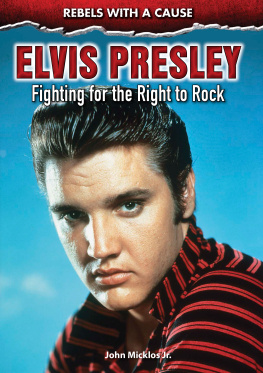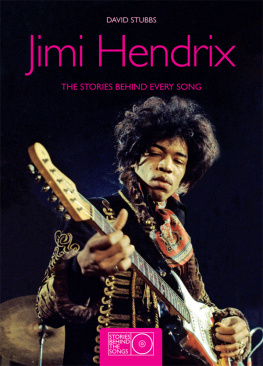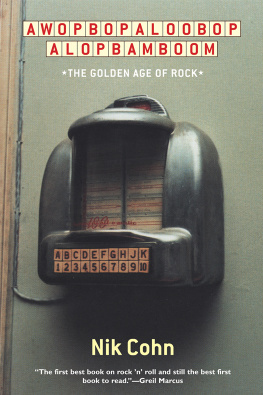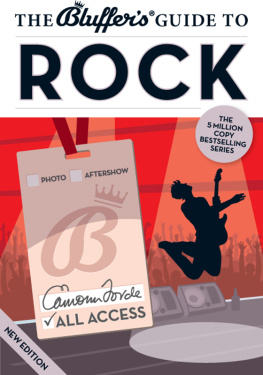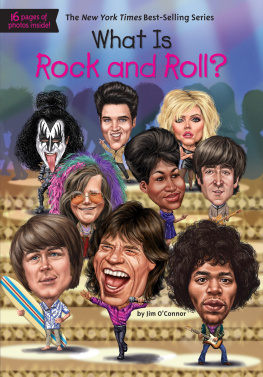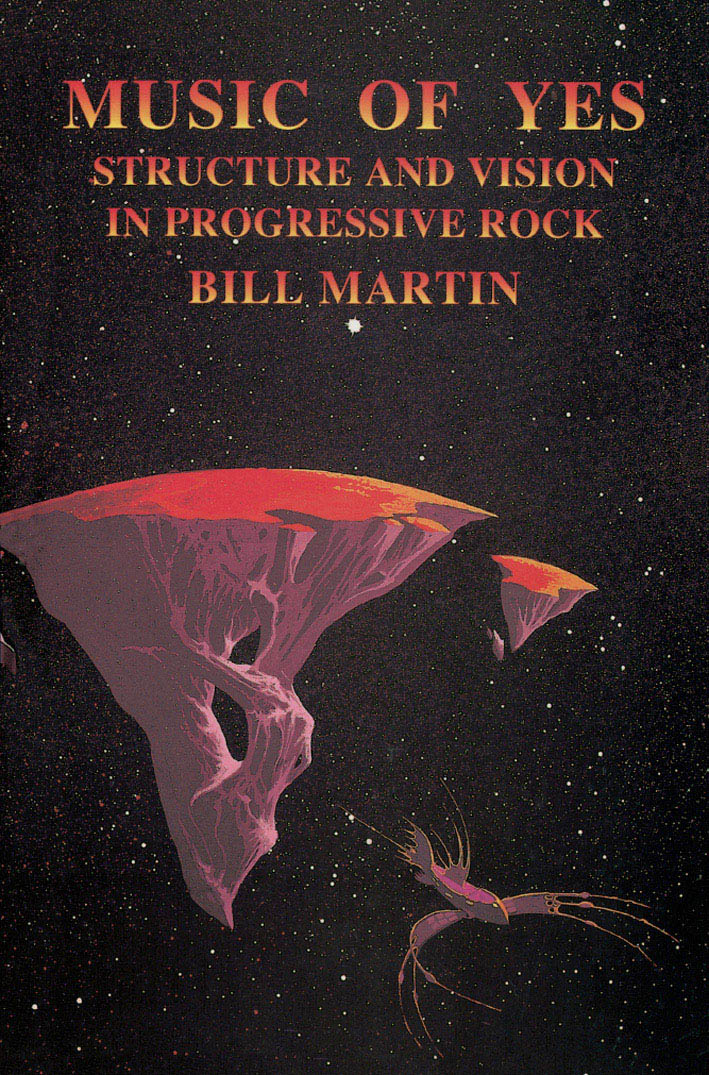

Editorial Board
Alison Brown
David Detmer
Bill Martin (series editor)
Kerri Mommer (Open Court editor)
Deena Weinstein

To order books from Open Court, call toll-free 1-800-815-2280.
This book has been reproduced in a print-on-demand format from the 1997 Open Court printing.
Open Court Publishing Company is a division of Carus Publishing Company
Copyright 1996 by Carus Publishing Company
First printing 1996
Second printing 1997
All rights reserved. No part of this publication may be reproduced, stored in a retrieval system, or transmitted, in any form or by any means, electronic, mechanical, photocopying, recording, or otherwise, without the prior written permission of the publisher, Open Court Publishing Company, A Division of Carus Publishing Company, 315 Fifth Street, P.O. Box 300, Peru, Illinois 61354-0300.
Library of Congress Cataloging-in-Publication Data
Martin, Bill, 1956
Music of Yes: structure and vision in progressive rock/Bill Martin.
p. cm.(Feedback; v. 1)
Includes discography (p. ), bibliographical references (p. ), and Index.
ISBN 978-0-8126-9945-6
1. Yes (Musical group)Criticism and interpretation. 2. Progressive rock musicHistory and criticism. I. Title. II. Series: Feedback (Chicago, III.); v. 1.
ML421.Y48M37 1996
782.421660922DC20
96-42932
CIP
MN
For my friends in listening and life
Tim Crete
Kevin Condatore
Zane Edge
Lydia Eloff
Claudia Ericson
Nina Frankel
Tony Kirven
Gary James
Joanie Jurysta James
Chelsea Snelgrove
Garry Rindfuss
Mark Stone
Chet Williamson
The question is thus not the last word in language. First, because it is not the first word. At any rate, before the word, there is this sometimes wordless word which we name the yes. A sort of pre-originary pledge [gage] which precedes any other engagement in language or action. But the fact that it precedes language does not mean that it is foreign to it. The gage engages in languageand so always in a language. The question itself is thus pledgedwhich does not mean linked or constrained, reduced to silence, on the contraryby the pledge of Zusage [acceptance]. It answers in advance, and whatever it does, to this pledge and of this pledge. It is engaged by it in a responsibility it has not chosen and which assigns it even its liberty. The pledge will have been given before any other event. It is nonetheless, in its very coming before, an event, but an event of which the memory comes before any particular recollection and to which we are linked by a faith which defeats any narrative. No erasure is possible for such a pledge. No going back.
Jacques Derrida, of Spirit
And the yes keeps restarting itself, an infinite number of times...
Jacques Derrida, Ulysses Gramophone
Contents
Guide
Contents
This book was written as a true labor of love over the course of about four years. When I began writing music of Yes, I actually had little idea of whether or not there would be an audience for such a book. Not being plugged into the scene around Yes (or any other group), I was unaware that there remains a solid base of support for a group whose music and vision has been and should continue to be a force for redemption and against cynicism in the world. I first became aware of the extent of this support when I published an article on Chris Squire in Bass Player magazine in November 1994. I want to thank the editor and publisher of that magazine, Jim Roberts, both for publishing the article and for opening me up to many in the Yes family who have been supportive and helpful in this writing effort. Among these is especially Glen DiCrocco, who has been unsparing with advice and information. Among those who contacted me while I was writing the book, I would also like to thank David Orsini and Nick Kokoshis (the Sunlight Caller) for their encouragement.
As always, my colleagues in philosophy have been generous with their time and ideas; I would especially like to thank Andrew Cutrofello, David Detmer, Alison Brown, George Trey, Al Cinelli, and Leslie Jones, six good friends who have also thought a good deal about music. In addition, Stephen Houlgate deserves special mention for sharing not only musical and philosophical insights, but also very useful information concerning things English.
I am most appreciative to Kerri Mommer for her hard and meticulous work as editor of this project. But I am even more appreciative to her for believing in the project and going to bat for it. Thanks very much, as well, to all of the folks at Open Court; I hope that this is the beginning of a long and fruitful exploration of the critical issues in and around music.
I had already known Kate Murphy for some time, as a graduate student in the department in which I am a professor, when we found that we had a mutual interest in the music of Yes. As it turned out, Kate had had other associations with the group as well. Kate supplied me with a very useful Yes file, a rather large collection of articles, reviews, and interviews from over the years, and this was very helpful. Kate, thanks.
I am also fortunate to have Deena Weinstein as a colleague at DePaul University. In formal terms she is a sociologist, but I know her as our resident professor of rock and roll. Thanks, Deena, for many valuable conversations and insights.
This book is dedicated to thirteen people who were my close friends in high school and college. Some of them remain close to me now. In two cases, I dont even know where these people are. Regardless, high vibrations go on, and they will continue to go on. These folks were there when I formed some of my initial views about Yes, and they played a large role in the formation of my views about music more generally. Wherever you are, I love you and wish you well.
Within this group, I would especially like to thank Claudia Ericson, Garry Rindfuss, Chelsea Snelgrove, Zane Edge, and Tony Kirven for teaching me much about music and life. (It occurs to me only now that each one of these friends and former bandmates is or was a drummerhmm...) So, when are we getting the band back together?
For whatever reason, I seem to have a fair amount of vinegar in my constitution. As always, therefore, I must conclude by thanking my wonderful companion in life and thought, Kathleen League, for putting the sweetness in, and stirring it with a spoon.
The music of Yes has been a force in my life for close to twenty-five years now. Force, I believe, is the proper term, for I have always felt this music as a force, especially in the sense of something to be reckoned with. Words such as force and movement abound in Yes lyrics (which is to say, primarily, Jon Andersons lyrics), and Jon Anderson said recently that the reformation of Yes in the early eighties had to do with the fact that he wanted Yes to be a force, once more, in music. Rick Wakeman said recently that the band Yes is simply defined as those musicians who have the honor of playing the Yes music (as he put it) at any given time. I think that is very perceptive, and the idea of a musical force, and perhaps something beyond simply a musical force, is felt here too, in the idea that the musicians themselves are the instruments of the music. Such a conception of music then invites the participation of others, and listening becomes, paradoxically, active. Paradoxically not because all real listening is not active, for it surely is, and a quality missing in many who would want to be musicians is precisely the ability to listen. Instead, the paradox is in the fact that the guiding conceptions of the band must have been larger than the members of the band itself, and so we, we listeners in the larger world, must have participated in some sense in making this music. For the creation of such a context, however, the musicians of Yes deserve all the credit, and it is the central purpose of this book, over and above the attempt to say something insightful and elucidating about the music of Yes, to give back to that music, albeit in a small way, some of the inviting force (what Jacques Derrida calls absolute hospitality) that I and many others have felt for more than these twenty-five years.


